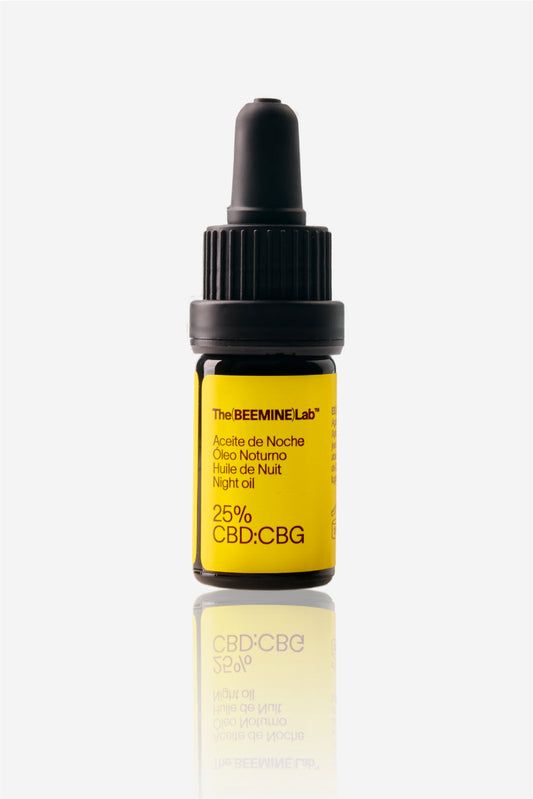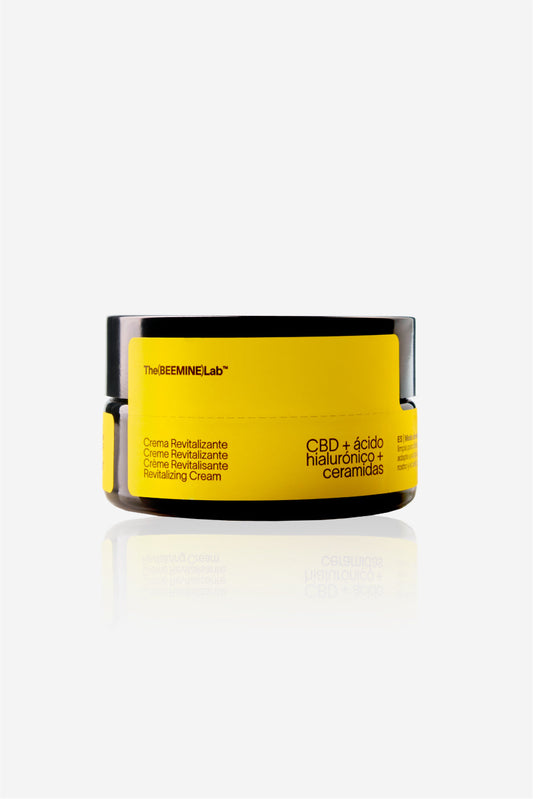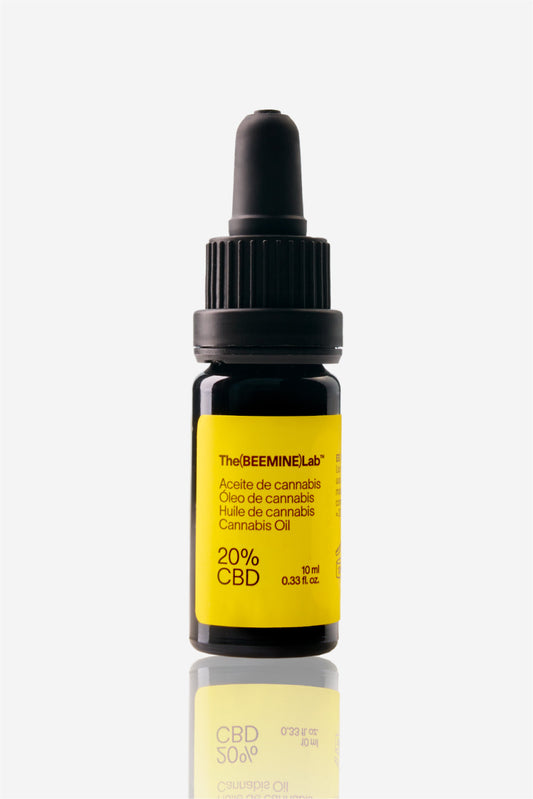Cannabinoids such as CBD, THC, and CBG have a number of promising properties for skin conditions such as eczema, atopic dermatitis, acne, itching, rosacea, and even psoriasis.
CBD (Cannabidiol) is a promising cannabinoid with
regulatory, analgesic, anti-inflammatory, antipruritic (anti-itch) and antioxidant properties, among others .
Although CBD research is still in its infancy,
researchers are excited by its many properties for
treating conditions as diverse as anxiety or
skin conditions like psoriasis.
In this article we will briefly explain
the findings on CBD and psoriasis . We will discover how this cannabinoid, derived from hemp, could be used as
a treatment to regulate and alleviate the symptoms of this skin disease that, as of today, has no cure.
What is psoriasis?
Psoriasis is a
chronic autoimmune disease that affects our skin
. It is a genetically predisposed disease, but triggered by the environment . That is, the risk of suffering from it increases according to our inherited genetics but the symptoms appear as a result of external factors such as pollution, stress, etc.
It is characterized by inflammation caused by an erroneous response from our immune system that starts a loop of inflammation and increased immune cells. The inflammation commonly appears as red, scaly plaques.
According to the World Psoriasis Day Consortium,
psoriasisaffects nearly 2-3% of the world's population . It is a serious skin disease that, according to statistics compiled by the World Psoriasis Consortium,
negatively affects the quality of life of 60% of people who suffer from it (
1 ).
There are a variety of different types of psoriasis:
- Plaque (most common)
- Guttate
- Inverse or Inverted
- Pustular
- Erythrodermic
- Of nail
- Arthritic
Currently, the most common treatments for psoriasis, according to
Mayo Clinic , are:
- Topical therapies (including corticosteroids, calcineurin inhibitors, or coal tar treatment).
- Light therapy (UVB, laser therapy).
- Oral or injected therapies* (retinoids, steroids, biologicals that act by altering the activity of our immune system).
*Systemic therapies can have very serious side effects.
Why cannabinoids help psoriasis?
Over the past 50 years, scientific research into cannabis has grown rapidly, from
the synthesis of CBD and THC in Raphael Mechoulam's lab to the discovery of our endocannabinoid system and endocannabinoids in the 1990s.
The stimuli that our skin receives can influence our endocrine, immune and nervous systems, and the activity or response of these systems to external factors can be regulated by our ECS.
New data show that
most skin cells contain cannabinoid receptors. Furthermore
, suppressing skin inflammation is considered a primary function of the ECS . In other words, one of the main players in reducing skin inflammation is the Endocannabinoid system.
Cannabinoids may be involved in modulating our skin functions through our neuroendocrine immune network, however, their role in dermatological conditions remains unclear. (
2 )
What many studies have pointed out is that
imbalance or deregulation of the endocannabinoid system could be a key factor in dermatological conditions . (
3 ) Raphael Mechoulam, the father of cannabis research, also said this: “The endocannabinoid system is very important. Almost all the diseases we have are related in one way or another. And that is very strange.”
In 2019, a study confirmed that more research was needed, but that the
properties of cannabinoids and their interaction with the endocannabinoid system in our skin likely
indicate that we could be looking at “promising alternatives to traditional treatments.” (
4 )
This has led researchers to investigate the possible use of cannabinoids to alleviate serious skin conditions such as atopic dermatitis, eczema, acne and psoriasis.
If you want to know more about the relationship between our endocannabinoid system and our skin, check out our article "
Why is CBD beneficial for our skin? ".
Effects of CBD on psoriasis: clinical and scientific studies
Over the past 15 years, there have been a multitude of clinically supported trials investigating the potential use of CBD as a treatment for psoriasis.
There are currently a variety of clinical trials underway, most using CBD exclusively topically or internally. According to MD Hervé Damas,
“Depending on the severity of the disease, topical creams or a combination of topical and systemic treatments will be used.”
A promising example is the
trial being conducted at Aalborg University in Denmark to relieve arthritic psoriasis on the hands . This particular case has been
using 10mg CBD tablets ingested , once a day for two weeks and then 2 times a day for 2 weeks. If no results are shown the dose is increased to 10mg 3 times a day, a total of 30mg. (5)
There have also been
clinical cases with different ointments and salves . In an
Israeli study , completed in 2019, they used a combination of CBD and THC to study up to the maximum possible dose; unfortunately, the results have not been shared. (6)
In another
2019 study conducted in Italy ,
CBD-enriched ointments were used to
study the anti-inflammatory effects and possibilities of improving quality of life in patients with dermatitis (5 patients), psoriasis (5 patients), and skin scars (10 patients). The results were optimistic; however, with such a small sample size and no control group, it is difficult to find conclusive evidence. (7)

One of the most interesting studies for psoriasis and CBD is in the treatment of
arthritic psoriasis .
Nearly
1 in 3 people with psoriasis will develop psoriatic arthritis (PsA) in their lifetime. The inflammation caused by psoriasis can affect different organs and tissues in our body, and can especially affect our joints, causing inflammation and stiffness, similar to arthritis. Early treatment of PsA can help prevent permanent joint damage.
The analgesic and anti-inflammatory activity of CBD can soothe and relieve pain caused by arthritic psoriasis.
Cases where CBD has not been helpful
CBD can help relieve symptoms and regulate our immune system, however,
some forms of psoriasis are extremely severe and there is still a lack of research to support the sole use of CBD to help these forms of psoriasis.
At the moment, the most we know on this topic is that
not using your prescription medication while using CBD can cause flare-ups to recur , and at the moment, CBD has not been researched enough to prove that it is functional on its own, in severe cases.
How to Use CBD to Help Treat Psoriasis: Advice and Scheduling
If you have decided to use CBD to treat psoriasis, here are the most common ways of use among experts:
Route of administration
Based on current clinical trials, it appears that the best way to use CBD for psoriasis is
to combine internal* and external use.
Ingested use, or internal use that reaches the bloodstream, can be done with a tablet, a transdermal patch, or with CBD oils, sublingually.
Sublingual administration is one of the most common uses of CBD oils because of its rapid effect, as it quickly reaches the bloodstream.
* Domestic use is not regulated in Spain, however it is quite common in places like the US and the UK.
Dose
According to the findings of
a study by Alborg University in Denmark , the dose could
be started at 10 mg per day. If no results are seen, the frequency of the dose could be increased from once a day to twice a day after 2 weeks.
Topical application won't reach the bloodstream, but it can offer much-needed relief. CBD-enriched creams and ointments can help just as much as oils.
Complementary habits
CBD or any medication cannot cure this disease, they must always be accompanied by complementary habits. The
Mayo Clinic 's list of complementary therapies is a great way to start implementing habits that could help alleviate psoriasis symptoms:
- Take daily baths (Epsom salts, bath oils, and colloidal oatmeal can help)
- Use moisturizer, always + Oils to trap moisture
- Cover the affected areas at night.
- Expose your skin to small amounts of sunlight. A little vitamin D is good for our health.
- Apply medicinal ointments
- Avoid psoriasis triggers (infections, skin injuries, stress, smoking and intense sun exposure).
- Avoid drinking alcohol
- Try to maintain a healthy lifestyle. In addition to quitting smoking and drinking in moderation, if at all, you can manage your psoriasis by staying active, eating well, and maintaining a healthy weight.
Precautions to take when using CBD
CBD may have interactions with certain medications due to its inhibition of an enzyme , responsible for metabolizing certain medications. You should also always check with your doctor to make sure there are no interactions between your current medication and CBD. (7) It is important for anyone who is pregnant or breastfeeding to speak with their doctor about using CBD, as CBD can cross the placenta and may accumulate in breast milk. (8)
Side effects of using CBD to treat psoriasis
Known side effects of CBD are considered low to moderate and include: drowsiness, dry mouth, dizziness, and loss of appetite.
Conclusion: So, will CBD work or not?
At this time, like most data on CBD,
it is too early to make any conclusive statements .
The only thing we can conclude is
that CBD and other cannabinoids represent a promising future for certain dermatological diseases,
especially those that are autoimmune and cause inflammation.
For the moment, some experts see a promising future, however, many others are skeptical. Jordan Tishler, MD and physician told Health Magazine: “The effects of cannabis
are relatively weak compared to topical steroids like hydrocortisone. In short, at this time I would not recommend any topical cannabis or CBD products to treat a serious condition like psoriasis.”
However, others have been granted patents to continue the study and use of cannabidiol and even other cannabinoids, such as Cannbigerol, CBG: In 2019, Lekhram Changoer Lekhram and George Anastassov were awarded a patent for their six-week topical treatment of CBD and CBG.
We hope that studies will continue so that we can have more information about this promising cannabinoid and the many other promising substances that the Cannabis Sativa L plant has to offer.
Literature:
- Stern RS, Nijsten T, Feldman SR, Margolis DJ, Rolstad T. Psoriasis is common, carries a substantial burden even when not extensive, and is associated with widespread treatment dissatisfaction. J Investig Dermatol Symp Proc. 2004;9(2):136-139.
- Cintosun A, Lara-Corrales I, Pope E. Mechanisms of Cannabinoids and Potential Applicability to Skin Diseases . Clin Drug Investigative. 2020 Apr;40(4):293-304. doi:10.1007/s40261-020-00894-7. PMID: 32060787.
- Bíró T, Tóth BI, Haskó G, Paus R, Pacher P. The endocannabinoid system of the skin in health and disease: novel perspectives and therapeutic opportunities. Trends Pharmacol Sci . 2009;30(8):411-420. doi:10.1016/j.tips.2009.05.004
- Sheriff T, Lin MJ, Dubin D, Khorasani H. The potential role of cannabinoids in dermatology . J Dermatolog Treat. 2019 Oct 10:1-7. doi: 10.1080/09546634.2019.1675854. Epub ahead of print. PMID: 31599175.
-
CBD Treatment in Hand Osteoarthritis and Psoriatic Arthritis. Sponsor: Aalborg University Hospital. 2019-2020.
-
A Phase I, Double Blind, Randomized, Placebo Controlled, Maximal Dose Study to Determine the Safety, Tolerability of Topical Cream Containing MGC (Medical Grade Cannabis) in Healthy Volunteers. Sponsor: One World Cannabis Ltd. 2016-2019
- Palmieri B, Laurino C, Vadalà M. A therapeutic effect of cbd-enriched ointment in inflammatory skin diseases and cutaneous scars . Clin Ter. 2019 Mar-Apr;170(2):e93-e99. doi: 10.7417/CT.2019.2116. PMID: 30993303.
- Sarrafpour, S., Urits, I., Powell, J. et al. Considerations and Implications of Cannabidiol Use During Pregnancy . Curr Pain Headache Rep 24, 38 (2020).








